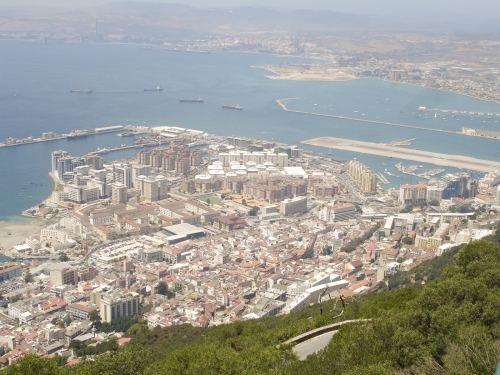Gibraltar is known for its political, economical and social stability. This self-governing British overseas territory is a small country with a population of around 30,000 people. Its mild climate and secure atmosphere make it an attractive destination for expats. Gibraltar is a major international financial hub among the European Union countries and serves as an ideal location for cross border trade since it is outside of the VAT zone. English is the main language spoken here and the legal system is based on the British one. This makes it all the more attractive to UK companies and British businesspeople. Here are the basics of immigration laws in Gibraltar.EU nationals
Nationals of the EU member states are free to live and work in Gibraltar. They are initially given a six-month visa, after which they will receive a residence permit that is renewable after five years. But this is provided they fulfill the condition of finding suitable employment or setting up a business. Gibraltar does not deny work permits to nationals of EU countries.
Non-EU nationals
Citizens of non-EU countries need to make an application for residency under the Immigration Control Ordinance. It is government policy that those who apply for residency must be ready and able to buy property that can sufficiently accommodate the applicant and any dependent family. The applicant must also have sufficient financial resources and must be in good health. Applicants that purchase luxury property in the country find it easier to acquire residency. However, the government also has the right to deny a non-EU citizen the option of purchasing residential property.
Non-EU nationals who wish to live in Gibraltar but do not want to purchase property have another option: obtaining employment. But the work permit will be accorded only if it can be shown that no Gibraltans were able and willing to occupy the job position. These individuals may receive residence permits, the duration of which depends on the type of employment they have obtained.
Residence permit holders are not required to live in Gibraltar. They also do not automatically receive social security or citizenship. But the residence permit holder’s children are eligible to attend public schools and can also receive the same benefits as the children of local residents.
EEA nationals
EEA nationals can stay in Gibraltar for up to three months for the purpose of securing a job or setting up a business. If they are not able to do so within the stipulated time, they may have to leave the country. EEA nationals who do find employment or establish themselves in business can then apply for a residence permit. Those who don’t intend to work or set up a business in Gibraltar can acquire the right to reside if they can show evidence that they and their dependent family members have adequate resources, and are covered by health insurance.
Taxation for residence permit holders
Individuals who reside in Gibraltar for more than a period of 183 days in a year are liable for taxation on their worldwide income. Taxpayers can choose between two systems to pay tax for each tax year. As a result, they can opt for the one that involves the lower amount of taxation. In both systems, payments can be made through the PAYE system.
The first system of taxation is the pre-existing Allowance Based System under which the first £4,000 of income is taxed at 15 percent, the next £12,000 of income is taxed at 18 percent and the rest of the income is taxed at 40 percent. Under the allowance based system, taxpayers get the benefit of an automatic tax cut of £300 or 2% of the tax bill, depending on whichever is higher.
The alternative system of taxation is the gross income based system that allows the choice of a flat tax rate with specific deductions for things such as pensions and medical insurance. The tax rates are different for income levels up to and over £25,000.
High net worth schemes for expat workers
The government of Gibraltar offers tax schemes as incentives to highly qualified expat professionals to fill senior management positions and to high net worth individuals to invest in the region.

